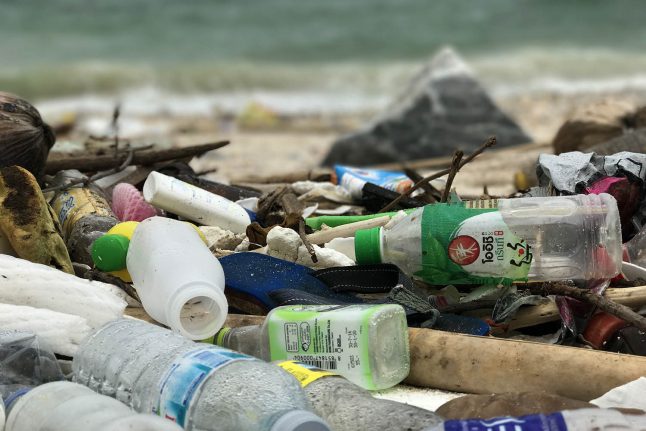From 2021 onwards, plastic straws, plates, cutlery, trays and other disposable ‘single-use’ plastics are to be subject to a Europe-wide ban.
In approving the ban on Wednesday afternoon, the European Parliament cited environmental waste as the major motivator.
Despite the country's green credentials, Germany produces significant amounts of plastic waste. Germans throw away 220 kilograms of packaging waste per year – more than any other European Union country.
SEE ALSO: Is Germany the green leader it's hyped up to be?
DPA reported that an estimated 80 percent of the garbage in the ocean is estimated to be plastic, while scientists estimate that between eight and 12 tonnes of plastic end up in the ocean each year.
The moves were originally agreed upon by the authorities in December of 2018, with Bloomberg reporting that the vote was a mere formality.
As reported by DPA, the Parliament voted strongly in favour of the move – 560 in favour, 35 against, 28 abstaining.
The new moves also required plastic drink bottles to be made of 30 percent recycled plastic by 2030, while 90 percent of plastic bottles must be made recyclable by the same year.
READ MORE: 60 percent of German plastic waste ends up in the wrong bin
Under the ban, only products which have a better, non-plastic alternative will be banned. Products which have a certain degree of plastic content – for instance tea bags or wet wipes – are to be sold with signs to inform consumers.
Despite criticism that the move may have negative economic consequences, the EU Commission has emphasised the long-term benefits of the ban.
READ MORE: German carmakers biggest global spenders on electric cars
READ MORE: Volkswagen to offer all-electric car-sharing in Berlin
p.p1 {margin: 0.0px 0.0px 0.0px 0.0px; font: 12.0px Helvetica}
p.p2 {margin: 0.0px 0.0px 0.0px 0.0px; font: 12.0px Helvetica; min-height: 14.0px}



 Please whitelist us to continue reading.
Please whitelist us to continue reading.
Member comments